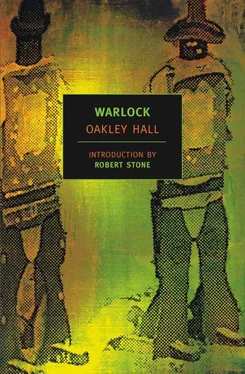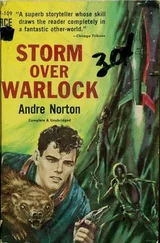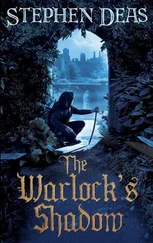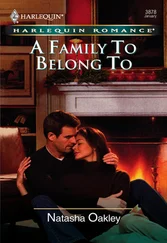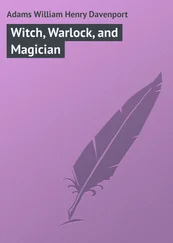“I told him it wasn’t me he had to worry about, it was you. You. For you had been rutting Kate and you were jealous by nature and no man to fool with. He was mad because she hadn’t told him about you, so I told him if he wanted Kate he had better get you before you got him, and sent word roundabout to you that he was out—”
His breath stopped in his throat as Clay got to his feet. But Clay only went to stand at the window. He leaned one hand upon the sash, staring out.
When Morgan spoke again his voice had gone hoarse. “By God, it was the best trick I ever pulled,” he said. “It made you a jackass and him a dead jackass — and Kate—” He stopped to catch his breath again. “Do you know what has always eaten on me? That nobody knew how I had served you all. It was a shame nobody knew. But how I laughed to think of Cletus jerking for that hogleg like it was a fence-post stuck in his belt. And you—”
Clay faced him. “He never did draw,” Clay said. “I don’t think he ever meant to. You are lying, Morg.” There was a little pink in his face and his expression was strangely gentle. “Why, Morg, are you trying to give me that, too? I don’t need that any more.” Then his eyes narrowed suddenly, and he said, “No, it is not even that, is it? You are telling me something to kill you for, not post you.”
“I told you I don’t play boys’ games!”
“Stop playing this one.”
“It is so, God damn you to hell!”
“Why, I expect part of it is,” Clay said. “I knew you had been in on it, for I have seen you chewing yourself. I expect you told him something like that to scare him so he would let Kate be. Not thinking he would come to me, though maybe you fixed it so that cowboy told me he’d heard Cletus was after me on account of Nicholson and I had better watch out — just in case Cletus did decide to make trouble. But I don’t believe he meant to draw on me; he just wanted to find out about Kate when he called after me. I was just edgy about any friends of Nicholson’s, was all, and thought he was out for blood.” He stopped, and his throat worked as he shook his head. “It is not so, Morg.”
Morgan stared back at him. Strangely it did not shake him that Clay had known, or guessed; he only felt dazed because he could not see what he could do next. He had chewed the end of his cigar to shreds, and with an uncertain movement he took it from his lips. He flung it on the floor. Clay said, “Once I would’ve wanted pretty bad to think what you just told me was so. But it was more my fault than it was yours. Whatever you did.”
“I served you up!” Morgan cried. He could feel the sweat on his face. “Hollow!” he cried. “Hollow as a damned plaster statue.”
“It doesn’t matter any more,” Clay said. “If it hadn’t been Bob Cletus dead to teach me a lesson, it would have been another. I learned that day a man could be too fast. I thought I had learned it,” he said.
“Damn you, Clay!” he whispered. All at once there was nothing in the world to hold to except this one thing. “Damn you! I will have my way!”
Clay shook his head almost absently. “Do you know what I wish?” he said. “I wish I was some measly deputy in some measly town a thousand miles away. I wish I was not Clay Blaisedell. Morg, you have killed men for my sake — Pat Cletus and McQuown that I know of. But I can’t thank you for it. It is the worst thing you have done to me, because it was for me, and I am more of a fraud of a thing than I knew. Morg — we think different ways, I guess.” He took up his hat; he turned his face away. When he went out he pulled the door quietly but firmly closed behind him.
“Don’t you have the dirty rotten gall to forgive me, damn you to hell!” Morgan whispered, as though Clay were still present. “You didn’t take that away too, did you? You didn’t take that!” He put his hands to his face; his mouth felt stretched like a knife wound. A burst of laughter caught and froze in his bowels like a cramp. “Well, I am sorry, Miss Jessie Marlow,” he said aloud. “But he was iron-mouthed beyond me.” You took me to the last chip, Clay, and won my pants and shirt too, and my longjohns are riveted on and too foul to bear. He shook his head in his hands. He would rather Clay had shot him through the liver than say what he had said, as he had said it, meaning what he had meant by it: We think different ways, I guess .
He pressed his hands harder to his aching face, suffocating in the sour, dead stench of himself. It was a long time before he remembered that he was lucky by trade, and that no one had ever beaten him.
THE sun was standing above the Bucksaws in the first pale green light of morning as Gannon came like a sleepwalker along the echoing planks of the boardwalk, along the empty white street. The inside of the jail was like an icehouse, and he sat at the table shivering and massaging his unwashed, beard-stubbled face. He felt sluggish and unrested, and his blood as slow and cold in the morning chill of the adobe as a lizard’s blood.
He sat staring out through the doorway at the thin sunlight in the street, waiting for the sounds of Warlock waking and going about its Sunday business, and waiting especially for the sound of the early stage leaving town. Today, like every other day, the sun would traverse its turquoise and copper arch of sky; a particular sun for a particular place, it seemed to him, this sun for this place bounded by the Bucksaws and the Dinosaurs, illuminating indiscriminately the righteous and the unrighteous, the just and the unjust, the wise and the foolish. Shivering in the cold he waited for Warlock to waken, and for Kate Dollar to leave, examining the righteousness that both moved and paralyzed him, the injustice he had performed upon himself because of his love of justice. He called himself a fool and prayed for wisdom, and saw only that he could not change his mind, for nothing was changed. He felt as though he were a monk bound to this barren cell by some vow he had never even formulated to himself. He thought of the end of the vow that Carl had known, and accepted. Maybe the only thing changed now was that that end was so much harder to accept.
The first sound he heard was a horn blowing a military call. It was faint, but clear and precise in the thin air — as out of place and improbable as though a forest with stream, moss, and ferns had showed itself suddenly in the white dust of the street. He did not move, holding his breath, as though he had mistaken the sound of his breathing for that other sound. After a while it came again, a bugle call signifying what, rallying or commanding what, he did not know. The brassy notes hung in the air after the call had ended. He rose and moved to the doorway. A Mexican woman with a black rebozo over her head came down Southend Street, and Goodpasture’s mozo appeared, broom in hand, to speak to her as she passed, and then turned and leaned on the broom and stared east up Main Street.
He went back inside the jail and sat down again. Once he thought he heard the sound of hoofbeats, but it was faint, and, when he listened for it, inaudible, as though it had only been some kind of ghostly reverberation along his nerves. He began to think he had heard the bugle only in a half-dream, too. Immediately the brassy, shivering call came again, close now, a different call this time, and now when he hurried out the door there were many people up and down the street, all staring east.
Back of the Western Star he could see the cloud of tan dust rising, and he could hear the hoofs clearly as the dust rolled nearer. Preceding it, riders wheeled into Main Street on the road from Bright’s City. There were ten or twelve of them, in dusty blue and forage caps, one with the fork-tailed pennon on a staff. They came down Main Street at a pounding trot, looking neither right nor left as men hurried out of the street before them, the leader with three yellow Vs on the sleeve of his dark blue shirt, and a dusty-dark, mustachioed face beneath the vicious-looking, flat-vizored cap; the second man holding the pennon staff, and, next to him, the bugler with rows of braid upon his chest. He watched them pass him, and another group appeared, far up the street. The first group trotted to the end of town, wheeled about, and halted. The second turned south down Broadway. A third did not come into Main Street at all, but trotted dustily on past it. Another bugle sounded and more cavalry appeared, this time a much larger body and a mixed one, for there were civilian riders in it. Frozen into his eye for an instant was the image of a huge, uniformed man in a wide, flat hat with one side pinned up, and a white beard blown back against his chest.
Читать дальше
